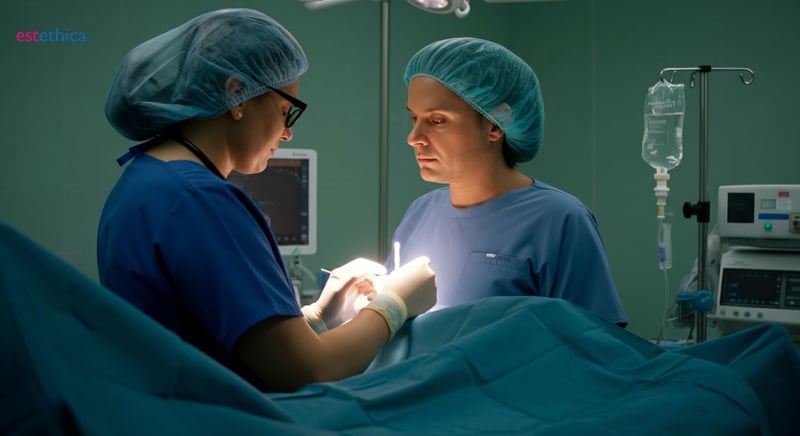Understanding Stomach Surgery: Benefits, Risks, and Recovery Insights
Explore how stomach surgery can be a powerful tool in achieving weight loss and enhancing overall health.
Stomach surgery has become a viable solution for individuals seeking significant weight loss when conventional methods prove inadequate. This medical intervention involves various surgical techniques aimed at resizing the stomach to help patients not only lose weight but also maintain a healthy body weight over the long term. Understanding these procedures can open new doors to a healthier lifestyle, offering significant benefits in terms of health, confidence, and life expectancy.
What You Need to Know About Stomach Surgery
Understanding the Types of Stomach Surgery
Stomach surgery, commonly referred to as bariatric surgery, encompasses various procedures designed to aid in weight loss. These include gastric bypass and sleeve gastrectomy, each with unique mechanisms and benefits. Gastric bypass involves creating a small pouch from the stomach and connecting it directly to the small intestine, effectively bypassing a portion of the digestive tract. This results in reduced calorie absorption and significant weight loss. Sleeve gastrectomy, on the other hand, involves removing a large portion of the stomach, leaving a tube-like structure, which limits food intake and decreases hunger hormones.
Benefits and Risks of Gastric Surgery
- Significant weight loss: Patients often lose 60-70% of excess weight within two years.
- Improved health conditions: Many experience remission of type 2 diabetes and hypertension.
- Enhanced quality of life: Increased mobility and energy levels are common post-surgery.
Despite these benefits, gastric surgery carries potential risks. Complications can include infection, nutritional deficiencies, and, in rare cases, surgical leaks. It's crucial for patients to discuss these risks with their healthcare provider to make an informed decision.
- Pre-surgery evaluation: Comprehensive health assessments are conducted to ensure patient suitability.
- Surgical procedure: The chosen method is performed under general anesthesia, typically lasting 1-3 hours.
- Post-surgery recovery: Patients usually stay in the hospital for 2-3 days, followed by a gradual return to normal activities.
Recovery time for bariatric surgery varies, but most patients resume normal activities within 4-6 weeks. Adhering to dietary guidelines and regular follow-up appointments are essential for long-term success.

Understanding the Risks of Gastric Surgery
Potential Complications and How to Mitigate Them
Gastric surgery, while offering significant benefits, presents various risks that require careful consideration. Common complications include infection, which can occur at the incision site or internally, and nutritional deficiencies due to altered digestion. Patients must work closely with healthcare providers to understand these risks and develop strategies to minimize them.
- Infection prevention: Adhering to post-operative care instructions and maintaining hygiene can reduce infection risks.
- Nutritional management: Regular monitoring and supplements can help address potential deficiencies.
- Long-term follow-up: Continuous medical supervision ensures early detection and management of complications.
In addition to these measures, patients should engage in lifestyle changes, such as adopting a balanced diet and regular exercise, to support recovery and long-term health.
Steps to Ensure a Safe Surgical Experience
- Comprehensive pre-surgery evaluation: Thorough assessments help identify potential risk factors.
- Choosing an experienced surgeon: Expertise reduces the likelihood of surgical errors and complications.
- Adhering to post-surgery guidelines: Following medical advice is crucial for a smooth recovery.
By understanding the risks and actively participating in their healthcare journey, patients can significantly enhance their surgical outcomes and overall well-being.

Recovery Time: What to Expect After Bariatric Surgery
Navigating the Post-Surgery Phase
After undergoing bariatric surgery, patients enter a critical recovery phase that demands careful attention to ensure successful healing. Initially, rest is paramount, allowing the body to recuperate from the surgical procedure. During the first few weeks, patients are advised to limit physical activities and gradually reintroduce them as their strength returns. This period is crucial for the body to adapt to the changes and begin the healing process.
- Adherence to dietary guidelines: Essential for healing and adapting to the new stomach size.
- Regular follow-up appointments: Monitor progress and address any concerns promptly.
- Support systems: Family and friends can provide emotional and practical support during recovery.
These elements collectively contribute to a smoother recovery, helping patients adjust to their new lifestyle and dietary habits.
Steps for a Successful Recovery
- Initial rest period: Allow the body to heal by minimizing physical exertion.
- Gradual activity increase: Slowly incorporate light exercises to regain strength.
- Long-term lifestyle changes: Adopt healthy eating habits and regular physical activity.
By following these steps, patients can enhance their recovery experience, ensuring the long-term success of their bariatric surgery. The journey requires patience and commitment, but the results can lead to significant improvements in health and quality of life.

Innovative Techniques in Gastric Surgery Today
Advancements in Minimally Invasive Gastric Surgery
Recent innovations in gastric surgery have significantly transformed the field, particularly through the adoption of minimally invasive techniques. Laparoscopic surgery, for instance, has become a cornerstone in reducing recovery time and postoperative discomfort. This technique involves making small incisions, allowing surgeons to operate with precision and minimal tissue damage. As a result, patients experience quicker recovery and less pain compared to traditional open surgery.
- Reduced scarring: Smaller incisions lead to less visible scars, enhancing patient satisfaction.
- Lower infection risk: Minimally invasive methods decrease the likelihood of postoperative infections.
- Shorter hospital stays: Patients often return home sooner, promoting faster recovery in a familiar environment.
These benefits underscore the importance of technological advancements in improving patient outcomes and surgical efficiency.
Emerging Techniques and Their Impact
The field of gastric surgery continues to evolve with the introduction of robotic-assisted procedures and enhanced imaging technologies. Robotic systems provide surgeons with greater dexterity and control, allowing for more precise operations. This technology is particularly beneficial in complex cases where traditional methods may fall short. Additionally, advanced imaging techniques, such as 3D visualization, offer detailed insights into the surgical area, aiding in better planning and execution.
- Preoperative planning: Enhanced imaging helps in detailed surgical mapping and risk assessment.
- Robotic assistance: Provides improved precision and control during intricate procedures.
- Postoperative monitoring: Advanced technologies facilitate effective recovery tracking and complication management.
These innovations not only improve surgical outcomes but also pave the way for future advancements in gastric surgery, promising even more refined and effective procedures.
Long-term Lifestyle Changes for Success
Key Components of a Successful Post-Surgery Lifestyle
Achieving long-term success after gastric surgery requires a comprehensive approach to lifestyle changes. Patients must embrace a balanced diet, incorporating nutrient-rich foods to support their altered digestive system. Regular exercise is equally important, helping to maintain weight loss and improve overall health. For instance, incorporating activities like walking or swimming can enhance cardiovascular health and boost energy levels.
- Balanced diet: Focus on high-protein, low-sugar foods to support nutritional needs.
- Regular exercise: Engage in activities like yoga or cycling to improve fitness.
- Emotional support: Seek counseling or support groups to navigate psychological challenges.
These elements are crucial in sustaining the benefits of bariatric surgery, ensuring patients achieve and maintain their health goals.
Steps to Implement Long-term Lifestyle Changes
- Set realistic goals: Establish achievable milestones to track progress and stay motivated.
- Develop a routine: Create a consistent schedule for meals and physical activity.
- Monitor progress: Regularly assess health metrics and adjust lifestyle habits as needed.
By following these steps, patients can effectively integrate new habits into their daily lives, fostering a sustainable path to improved health and well-being. The journey requires dedication and adaptability, but the rewards are substantial, offering a renewed sense of vitality and confidence.
Innovative Minimally Invasive Gastric Surgery Techniques
Excellence in Gastric Surgery Recovery and Long-term Success
Frequently Asked Questions
What are the main types of stomach surgery for weight loss?
What are the benefits of stomach surgery?
What are the risks associated with gastric surgery?
How long is the recovery time for bariatric surgery?
What innovative techniques are used in gastric surgery today?
Discover the Path to Healthy Beauty with estethica's Award-Winning Services. Contact Us for a Free Consultation Today!
📞 Call Now for Your Free Consultation